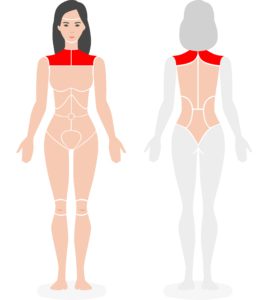Introduction
Experiencing shoulder pain during premenstrual syndrome (PMS) is a common yet often overlooked symptom. While PMS is typically associated with abdominal cramps, mood swings, and fatigue, many women also report discomfort in the shoulder area. Understanding the connection between shoulder pain and PMS can help in managing this symptom effectively.
What Is Shoulder Pain PMS?
Shoulder pain PMS refers to the discomfort or pain experienced in the shoulder area during the luteal phase of the menstrual cycle, which occurs after ovulation and before menstruation. This pain can range from mild stiffness to sharp, debilitating discomfort. The exact cause of shoulder pain during PMS is not fully understood, but several factors may contribute to its onset.
Causes of Shoulder Pain During PMS
-
Hormonal Fluctuations
During the luteal phase, the body experiences a rise in progesterone levels. This hormone can lead to fluid retention and inflammation, which may affect the muscles and joints, including those in the shoulder area. Additionally, hormonal changes can influence pain perception, making existing discomfort feel more intense.
-
Muscle Tension and Stress
PMS is often accompanied by increased stress and anxiety levels. These emotional states can lead to muscle tension, particularly in the upper body, including the shoulders. Chronic muscle tension can result in pain and discomfort, which may be more pronounced during PMS.
-
Postural Changes
Changes in posture during PMS, due to bloating or fatigue, can place additional strain on the shoulder muscles. Poor posture, such as slouching or hunching over, can exacerbate shoulder pain during this time.
-
Referred Pain
Pain originating from other areas, such as the neck or upper back, can radiate to the shoulder region. During PMS, the body’s sensitivity to pain may increase, making referred pain more noticeable.
Symptoms of Shoulder Pain PMS
The symptoms of shoulder pain during PMS can vary among individuals but commonly include:
-
Stiffness or tightness in the shoulder muscles
-
A dull ache or sharp pain in the shoulder area
-
Pain that radiates down the arm
-
Discomfort that worsens with certain movements or postures
-
Tenderness in the shoulder joint
These symptoms typically occur during the luteal phase and subside with the onset of menstruation.
Managing Shoulder Pain During PMS
While shoulder pain during PMS can be uncomfortable, several strategies can help alleviate the discomfort:
-
Regular Exercise
Engaging in regular physical activity can help reduce muscle tension and improve overall muscle strength, including that of the shoulder muscles. Activities like walking, swimming, or yoga can be particularly beneficial.
-
Stretching and Strengthening Exercises
Incorporating shoulder-specific stretches and strengthening exercises into your routine can help maintain flexibility and support the shoulder joints. Exercises that target the upper back and shoulder blades can be especially helpful.
-
Heat and Cold Therapy
Applying a warm compress or heating pad to the affected shoulder can help relax tense muscles and improve blood circulation. Conversely, using a cold pack can reduce inflammation and numb sharp pain. Care Mantradoc
-
Posture Correction
Being mindful of your posture throughout the day can prevent additional strain on the shoulder muscles. Ensure that your workstation is ergonomically friendly and take regular breaks to stretch and adjust your posture.
-
Stress Management Techniques
Practicing relaxation techniques such as deep breathing, meditation, or progressive muscle relaxation can help reduce stress and alleviate muscle tension associated with PMS.
-
Adequate Sleep
Ensuring you get enough restful sleep is crucial for muscle recovery and overall well-being. Poor sleep can exacerbate pain and discomfort during PMS.
-
Dietary Considerations
Maintaining a balanced diet rich in anti-inflammatory foods can help reduce muscle inflammation. Incorporate foods like leafy greens, fatty fish, nuts, and seeds into your meals. Additionally, staying hydrated is essential for muscle function and recovery.
When to Seek Further Help
While shoulder pain during PMS is typically manageable with self-care strategies, it’s important to consult a healthcare provider if:
-
The pain is severe or persistent
-
There is swelling or redness in the shoulder area
-
The pain is accompanied by other symptoms such as fever or unexplained weight loss
-
Over-the-counter pain relievers are ineffective
A healthcare provider can assess your symptoms, rule out other potential causes, and recommend appropriate treatments to alleviate the discomfort.
Conclusion
Shoulder pain during PMS is a common issue that many women experience. Understanding the potential causes and implementing effective management strategies can help alleviate this discomfort. By incorporating regular exercise, stretching, stress management techniques, and maintaining good posture, you can reduce the impact of shoulder pain during PMS and improve your overall quality of life.


